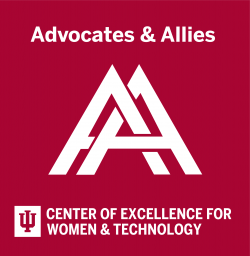The recent instability around the Deferred Action on Childhood Arrivals (DACA) program (including the history preceding it, the Trump administration’s rescinding of the program, and recent court decisions) reminds us we can all take steps to make higher education a safe and supportive place for the undocumented community. This week’s tips look at the role of racist nativism in the conversation about documented status, explore undocumented people’s experiences, and explore ways we can celebrate and support undocumented (including DACAmented) people around us.

Reflect: What kinds of messages are we sent about undocumented and DACAmented people?
The conversation about residency/citizenship status that surrounds undocumented people is steeped in racist nativism. Nativism is a mixture of racism, xenophobia, and nationalism that vilifies immigrants and elevates one culture over another. Nativism takes many forms, but features narratives of “invasion,” criminality, and other vignettes that make the “native” culture seem endangered by the presence of people from another country - particularly countries that are not demographically similar regarding race (Friedman, 2017). Not only is nativism a bigoted form of irony considering the violent removal of indigenous people at before and during the establishment of the United States, but it has dire effects on social bias and policy choices. How does the language of “illegal” vs. “undocumented” shape our empathetic responses? How do our stereotypes about undocumented status (i.e., only Latinx people) limit our ability to support other undocumented people (e.g., Black people, Asian people, etc.)?
Learn: Being Undocumented in Higher Education
Challenges facing undocumented people exist in every stage and level of higher education. Lacking resources on application processes, financial aid policies, and fear around how universities handle residency status are significant barriers for undocumented students applying to college (Murillo, 2017; Ramirez, 2021; Thangasamy & Horan, 2016). While on campus, undocumented people are subject to repeated racist, nativist microaggressions about deservingness and capability, including from university faculty and staff (Muñoz & Vigil, 2018). These microaggressions take on an additional layer of hostility and for undocumented women, who receive threats of sexual violence and other forms of sexism layered with nativist racism (Gomez & Pérez Huber, 2019), who already often experience an immense amount of trauma in their migration process (Goodman et al., 2015). Because of this prevailing nativist racism, disclosure of undocumented status can be an emotionally taxing, frightening, and harmful process – often leading to a certain amount of avoidance and silence around this important aspect of life (Muñoz, 2013). However, many undocumented people also use their status to support their peers and dispel stigma about undocumented status (Muñoz, 2016), as well as a feature of resistance in developing an academic identity (Tangalakis & Vallejo Peña, 2016).
Change:
- Listen to their stories: Undocumented people are misunderstood and often erased in our perceptions of who is a part of a university campus; of the stories we do hear, they often focus only on deficit perspectives, leaving out the cultural capital of this community (Pérez Huber, 2009; Reyna Rivarola, 2017). An important step to pushing back on negative, stereotypical perceptions of this community is by seeking out their stories, in their own words (Cadenas et al., 2018). This can be facilitated by informally seeking out resources or by developing facilitated conversations. Furthermore, we should consider and celebrate how dimensions of gender (Montiel et al., 2022) and other identities create nuance, such as approaches to personal motivations for education (Cardenas-Rodríguez et al., 2015).
- Help establish a community of mentors: Gámez, Lopez, and Overton (2017) found that, in addition to their own resiliency, mentors from both the institution and community were critical to undocumented/DACAmented students’ educational success. Faculty and staff within higher education can provide spaces for undocumented people (colleagues and students) to receive guidance around policy and academics, while also providing emotional and social support to overcome isolation on unwelcoming campuses. This mentorship should recognize the unique intersections of these students to make sure that they meet their layered needs, such as undocumented women navigating their career and campus (Pérez Huber, 2010). When considering community connections, build pathways for internships and other skill/career-oriented programs, as undocumented students do not receive the same kind of knowledge and opportunities around these important experiences as other students (Muñoz, 2013).
- Advocate for more inclusive programs: There are many promising programs that serve the undocumented community in higher education, such undocumented student resource centers (Cisneros & Reyna Rivarola, 2020) and tuition reduction programs (Thangasamy & Horan, 2016). We can also make other programming more welcoming by not requiring specific information to participate (like social security numbers) that could “out” them as undocumented and offering multilingual options for services (such as counseling centers) that would be helpful to undocumented people (Muñoz, 2013). Regardless, faculty and staff should seek out training to develop their knowledge of policy to not harm the students they may be serving (Martinez Hoy & Nguyen, 2021; Nienhusser & Espino, 2017).
Weekly Resource Recommendations
- Book:We are Not Dreamers: Undocumented Scholars Theorize Undocumented Life in the United States – This edited volume includes perspectives that challenge dominant narratives and provide nuance about the life and pathway of undocumented people in the United States.
- Video: DACA, What Next? – Javier Juarez discusses his journey as a DACA recipient and what the Trump administration’s decision means for the thousands who are like him.
- Article:Undocumented Student Allies and Transformative Resistance - Chen and Rhoads explore how student, faculty, and staff allies transformed their campus for undocumented people.
- Podcast:Dreamers and Immigration Policy: Past, Present, Future (dotEDU) – In this episode, Fansmith, Spreitzer, and Gunja discuss immigration policy and its effect on higher education
Get these tips delivered to your mailbox!
We send these tips every Tuesday during the fall & spring semesters to our mailing list. If you are not already on our mailing list you can request to be added by completing the form below.

